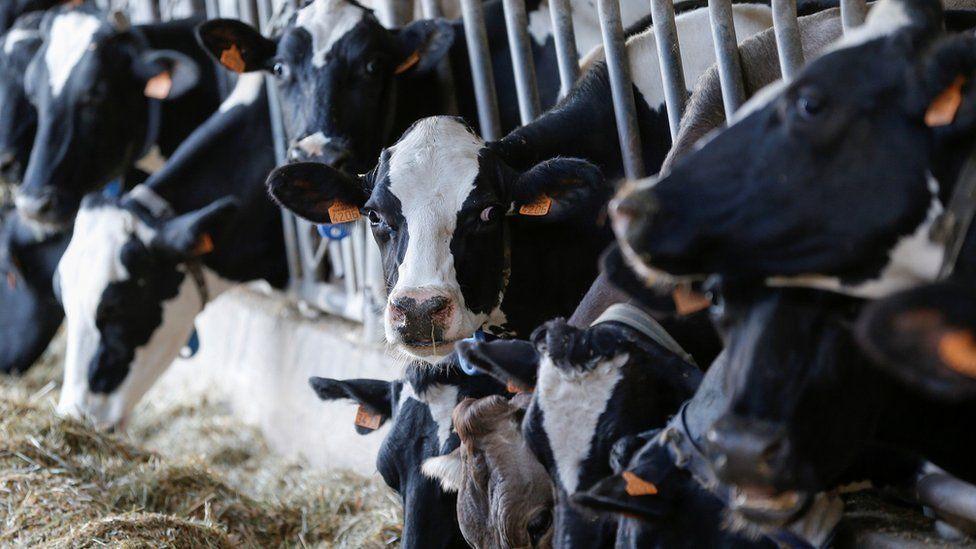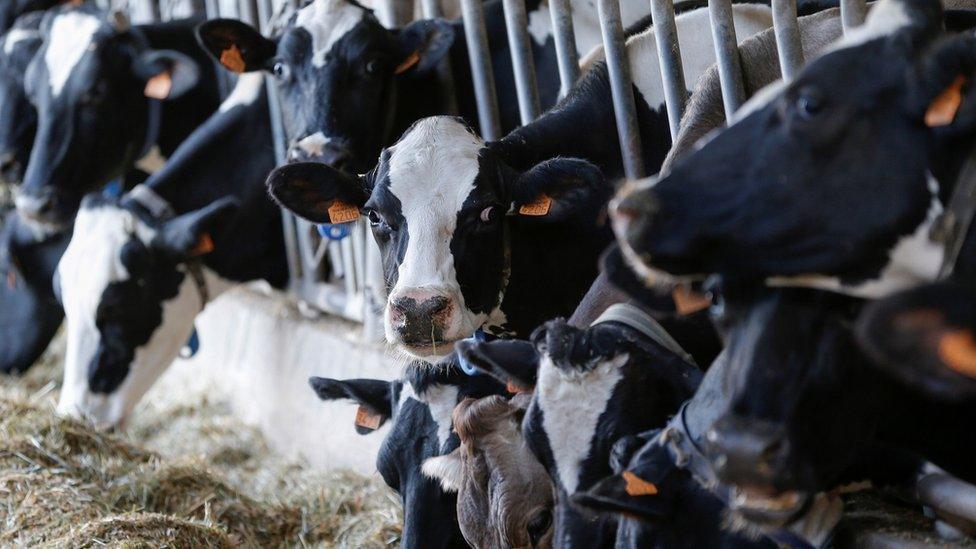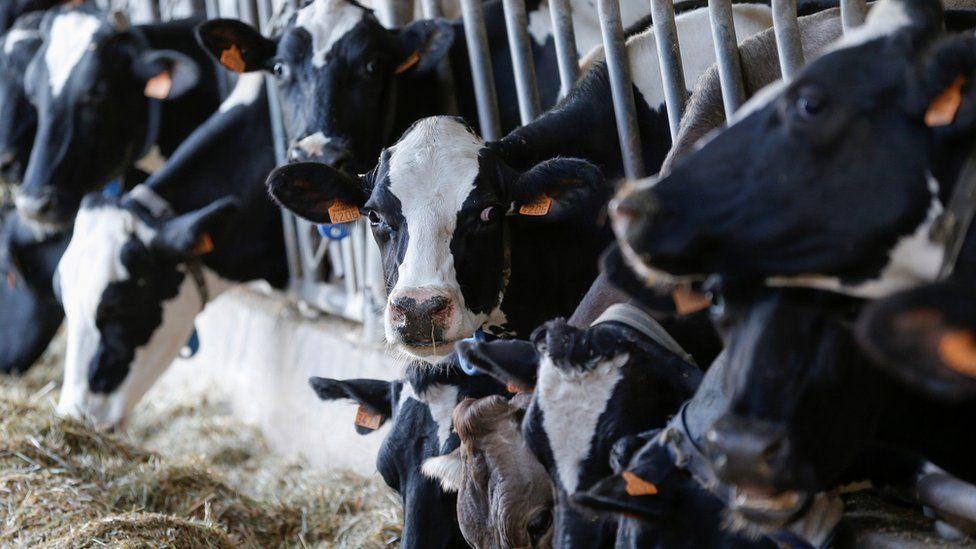Bovine TB tests stopped across Northern Ireland
- Published

Bovine tuberculosis incidents on farms in Northern Ireland are at their highest level in over 20 years
Bovine tuberculosis (bTB) tests across Northern Ireland have been stopped.
The tests had been carried out as part of a contract between the Department of Agriculture, Environment and Rural Affairs (Daera) and about 70 local veterinary practices.
That contract ended on Easter Monday - 10 April - and there has been no agreement on another one.
It comes as bTB incidents on farms in Northern Ireland are at their highest level in over 20 years.
About 22,000 herds are tested for bTB every year - more than 1.8m animals, according to Daera. Last year, 17,840 cattle were removed because they tested positive for the disease.
Colin McCrea, a vet and past president of the Association Of Veterinary Surgeons Practicing In Northern Ireland, has tried to negotiate a new contract with Daera.
"We tried to get into conversation with Daera about the contract and highlight the areas that we had concern about in the old contract for several years," he said.
"We got into some conversation with them six months ago and we felt that was plenty of time for them to understand the faults with the old contract.
"We thought six months was plenty of time, but clearly not."
'Extremely concerned'
The halting of bTB tests is concerning news for the dairy and beef industries. Having up to date TB tests is a requirement for moving cattle.
Plus there is the risk that the disease will spread, something Mr McCrea said he's "extremely concerned" about.

David Brown of the Ulster Farmers Union, said stopping testing is the last thing farmers, vets or the cattle industry need
An interim contract between Daera and vets has been proposed - a six-month contract to allow bTB testing to be restarted as soon as possible.
"There is a risk the disease will spread and that's something that's very much at the top of our concern," Mr McCrea said.
"So it will be in our nature to try and speed the process up as much as we possibly can and not take the six weeks that we should to sign this [interim] contract.
"I suspect we will try and have negotiating sorted out this week."
'Hiccup in testing'
If farmers don't get TB tests carried out on time their herd is subject to movement restrictions and the farmer can face penalties.
That's something David Brown, president of the Ulster Farmers Union, said is very unfair.
"The frustration for farmers is that these letters are spat out by the computer automatically restricting their herds," he said.
"So I guess we're making it clear to Daera that if this hiccup in testing is not any fault of the farmers, then there certainly should be no issue around cross compliance."
Above all, bTB is an animal health issue. In the last year it cost the government about £48m to deal with it.
But the number of incidents of bTB on farms is going up.
And Mr Brown said stopping testing is the last thing farmers, vets or the cattle industry need.
"BTB levels and incidents have gone above 10.5% in the past winter," he said.
"That's the highest it has been certainly in my memory. We're not in a good place.
"Having herds restricted is frustrating for farmers, but they don't want to see breaks in the testing - that actually adds to the difficulties and the problems.
"And of course if there are reactor animals on farms, it's vitally important that those are removed speedily and quickly so that they do not pose a risk to other animals."
In March 2022, a strategy to eradicate the disease was launched by the then agriculture minister Edwin Poots.
It included an enhanced testing programme, biosecurity measures and a "limited" badger cull.
Related topics
- Published28 August 2021

- Published27 July 2022
